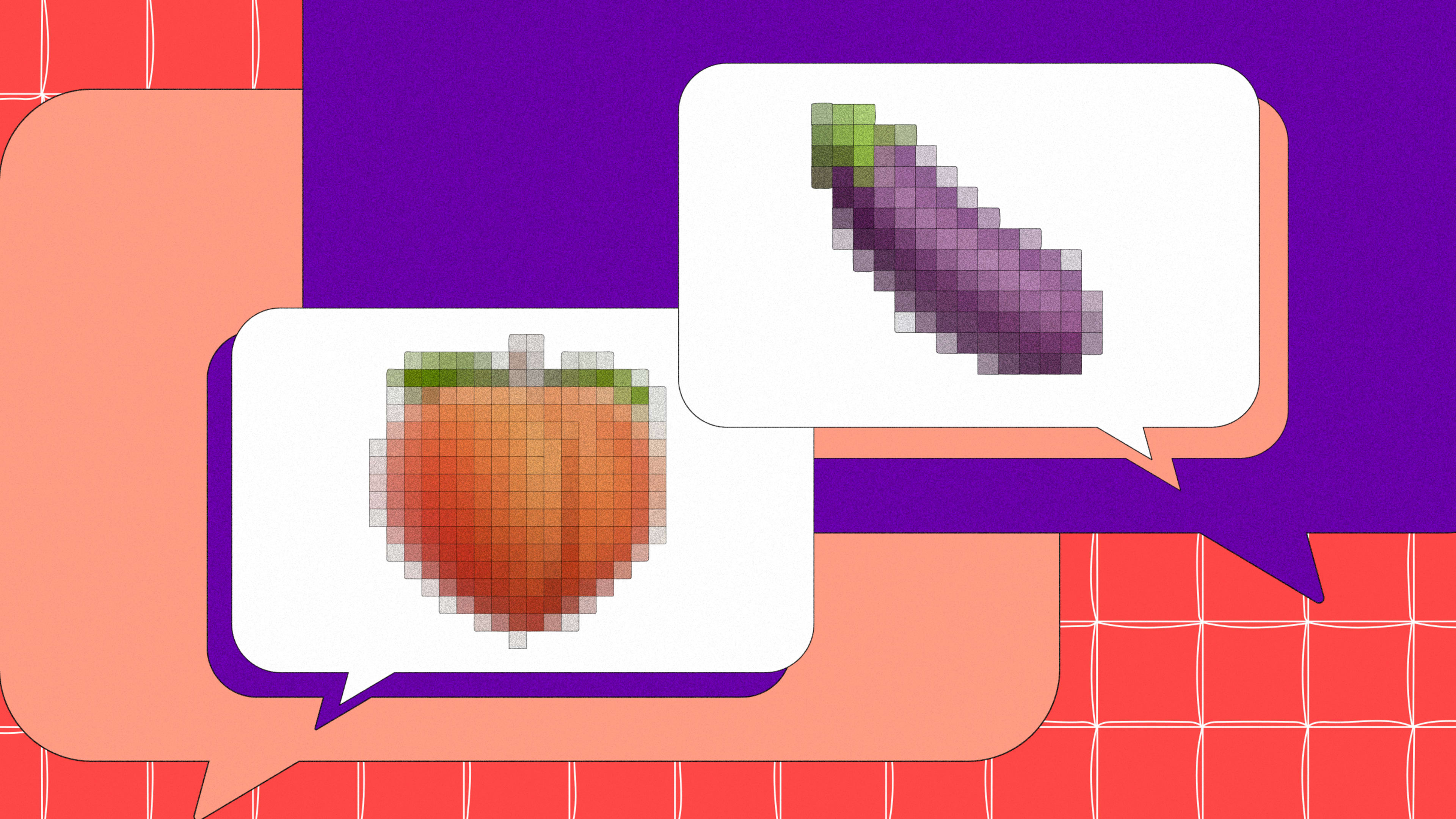Facebook and Instagram are now censoring what the companies describe as “contextually specific and commonly sexual emojis or emoji strings” in a summer update to the Sexual Solicitation section of the company’s Community Standards.
Yes, that could include the eggplant, sweat drip, and peach emoji.
Facebook and Instagram won’t censor “suggestive elements” on their own, however. They must meet a combination of criteria to be subject to removal, and be a part of an implicit or indirect sexual solicitation. The move underlines not only how seamlessly emoji have been integrated into language, but the platform’s struggle to define clear censorship rules in relation to sex and nudity.

This isn’t the first time that emoji have been subject to censorship. In 2015, emoji depicting homosexuality were investigated in Russia for potential violation of laws that prohibit its promotion. That same year, New Yorkers Against Gun Violence advocated for the removal of the pistol emoji, which has since been replaced with a toy water gun. Most recently, Apple’s recent iOS 13.1 update reportedly removed the Taiwanese flag emoji for users in Hong Kong and Macau.
The peach emoji alone has already endured one controversy, back in 2016, when Apple attempted to desexualize it by redesigning the peach to look more like an actual fruit and less like our derrieres. (The move was short-lived, however, after the new peach design faced backlash from users.)
Facebook’s Community Standards state that the company recognizes that the platform is used to discuss and organize activism against sexual violence and exploitation, but describes the rationale behind their policies as “draw[ing] the line” at solicitation: “when content facilitates, encourages or coordinates sexual encounters between adults.” The guidelines state such activity is prohibited so that users who are sensitive to those interactions aren’t hindered from using the platforms. And as emoji become an increasingly common component of online communication, it seems they too are subject to the policy.

The update has been seen by some as an example of undue censorship. The adult industry news website XBiz, which first spotted the new language last week, said, “Reports of bans for ‘Sexual Solicitation’ seem to show a pattern of the company specifically targeting sex workers, including those who take pains to abide by the general spirit of the community standards.”
In a statement to Fast Company, Stephanie Otway, a Facebook company spokeswoman, said, “Certain emojis will only be removed from Facebook and Instagram if they are used alongside a request for nude imagery, sex or sexual partners, or sex chat conversations. We aren’t removing simply the emojis.”
Like anything, context is important. Balancing safety and free speech is a difficult and complex act; it has fueled debate and disagreement as a function of the U.S. government in the 243 years since its founding. Now Facebook, a private company with the experience of 15 years behind it, will continue to fuel that discussion in our digital public square—even as our language changes, one peach at a time.
Recognize your brand’s excellence by applying to this year’s Brands That Matter Awards before the early-rate deadline, May 3.
